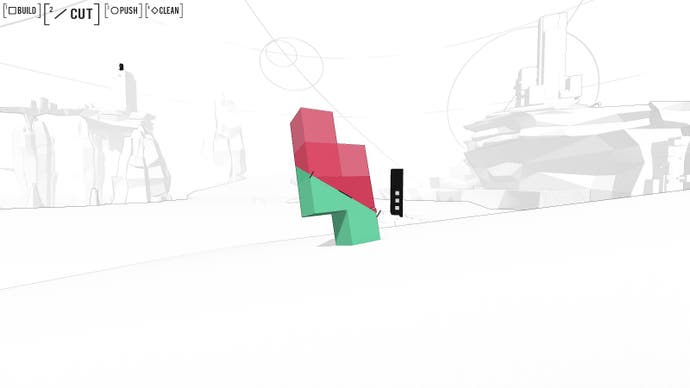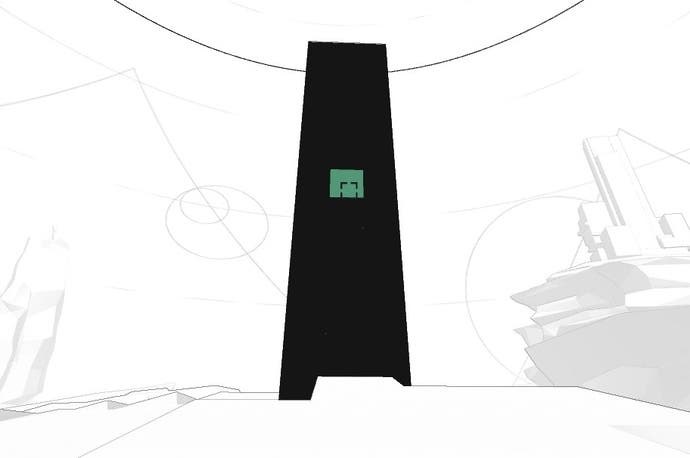Exploring the playful world of Bokida
Black and white.
I'm not going to tell you a great deal about Bokida, because it quickly becomes the sort of game you don't want to know too much about in advance. I will tell you this first-person exploration game is worth your time, though, and I'll also tell you that - amazingly - it takes the kind of mechanics that Minecraft and Tiny & Big have employed to create hilarious slapstick carnage, and uses them, instead, in the service of something much more serene and contemplative. This is a deeply playful game, but it isn't a hectic one, and although you can spend hours exploring the current demo build, it all comes down to just two elements for the most part. There's the huge echoing landscape you've been dropped into, and there are the simple, satisfying tools you've been granted to help you make sense of that landscape. That's it.
The landscape! Bokida initially takes place in a kind of rugged Monument Valley that's been coated with hundreds of gallons of luminous white paint. Ancient structures - vast gantries, half-dismantled bridges - lunge out of the ground alongside tall needles of rock pointed towards the sky. Above you hovers a huge black sun, and you can add to its bulk by activating a series of monoliths scattered about the place - if you can reach them, and if you can turn them on. These monoliths all have their own quirks to activating them, and they grant interesting perks that will change the way you can get around and interact with the world. That's the way it is with monoliths.

The tools! Bokida's built upon four simple interactions: the ability to place new blocks in the landscape, to cut those blocks up, to push their debris around, and to cancel them out again. Each of these interactions comes with its own pleasures, too. Although the bright white landscape really should be hard to build on, for example, placing blocks brings up the gentlest hint of a wireframe grid, and makes it easy to grow structures outwards by clicking and dragging. The cutting tool, meanwhile, can be rotated with the mouse wheel and can extend in size the longer you hold down the left mouse button. Even clearing stuff away is fun, as you summon an expanding sphere that wipes out everything you've made that falls within it.
What happens next is up to you as much as it's up to Rice Cooker Republic, the French team behind the project. If you're eager to hunt down and trigger all the monoliths as quickly as possible, Bokida's all about using your powers to create ladders and staircases that will allow you to gain access to the map's more inaccessible areas, as you then track the locations of your targets by following shadows, which will always point you in the right direction. If you're just up for playing around with the dreamy, rather gentle physics and the surprisingly strong pleasures of building something before whittling it down to pieces, you'll find that this austere environment makes a wonderful playground for aimless tinkerers.
As for the future, Bokida began as a student project and may well be on its way to becoming something a little more substantial than the single chapter that's currently freely available to play either in a browser or as a standalone download. Would you buy the full game if it was available? asks a poll over on Rice Cooker's website. After a morning of exploration, I think I might.









